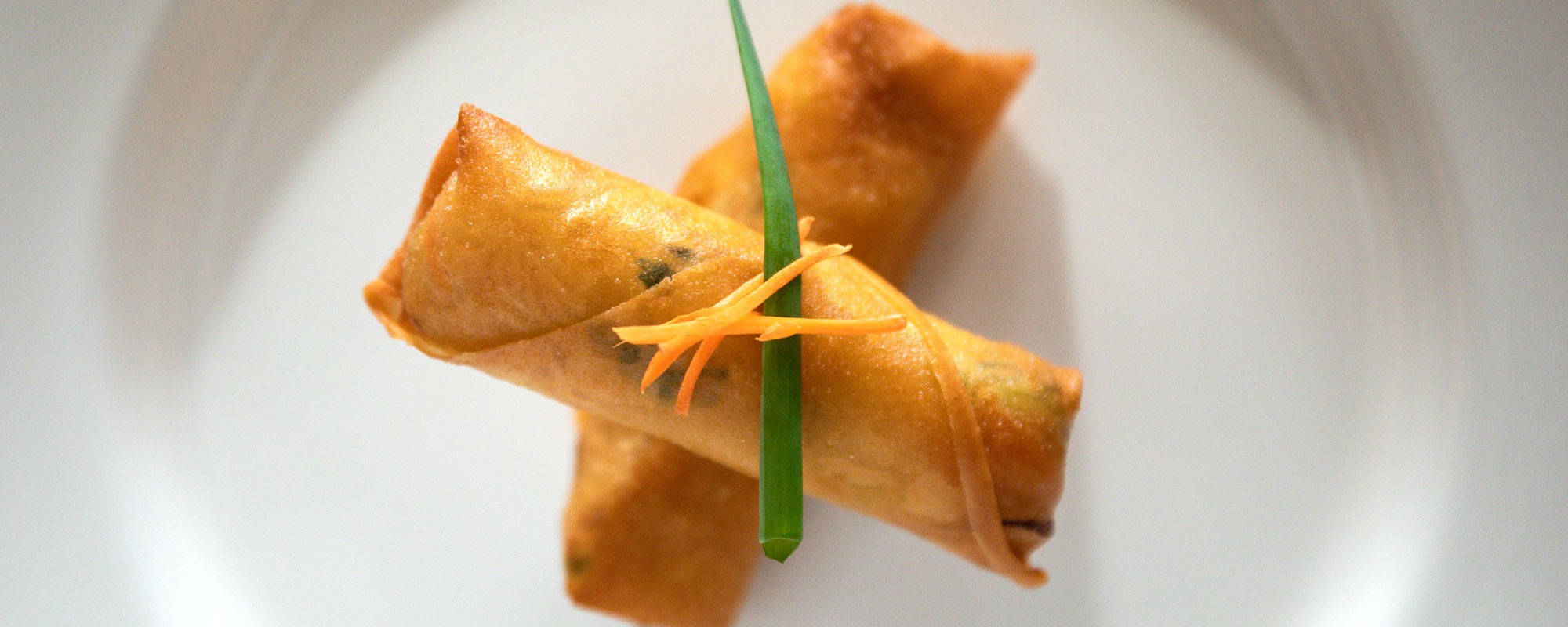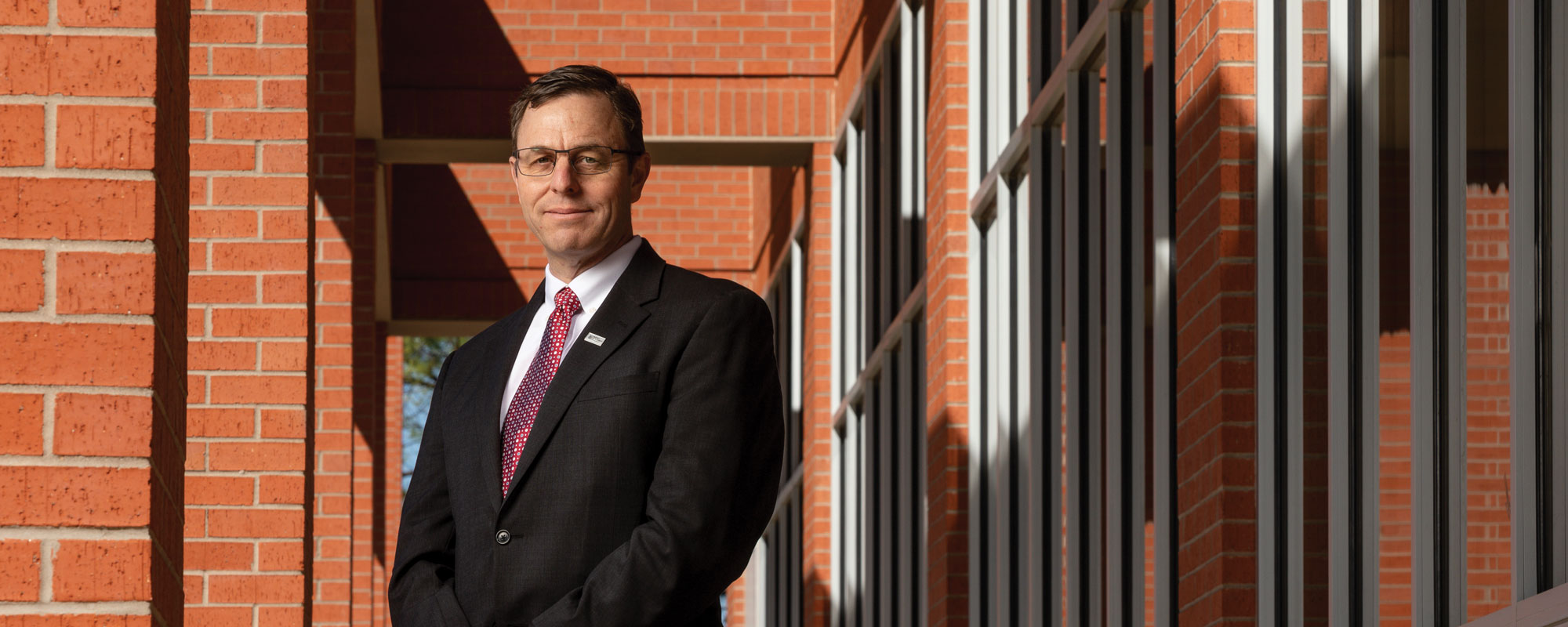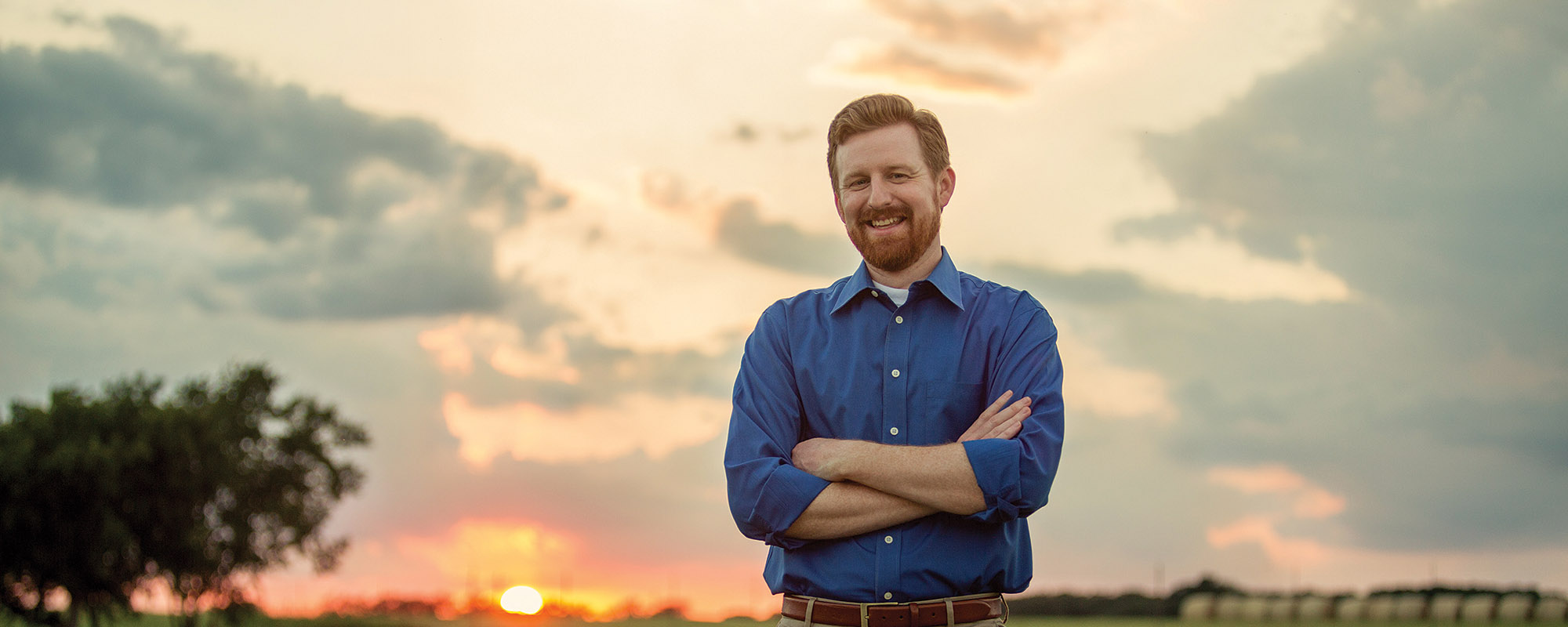Legacy Magazine:
Spring 2019
-

In the Wake of Leadership
After 18 years of service, Steve Rhines takes the helm of the Noble Research Institute ready to steer the organization into the next generation.
-
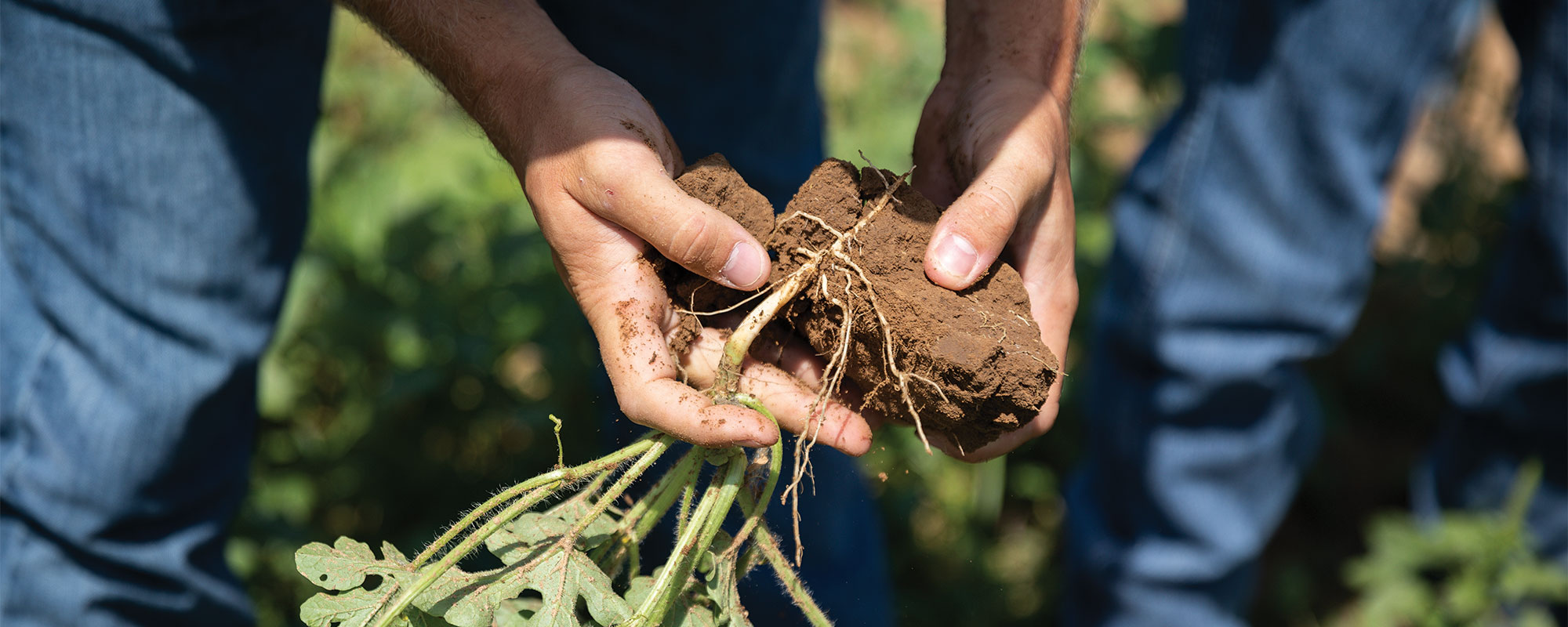
How Can You See Soil Health?
Many soil health measures require laboratory analysis. However, there are a few indicators you can look and smell for right in the field.
-
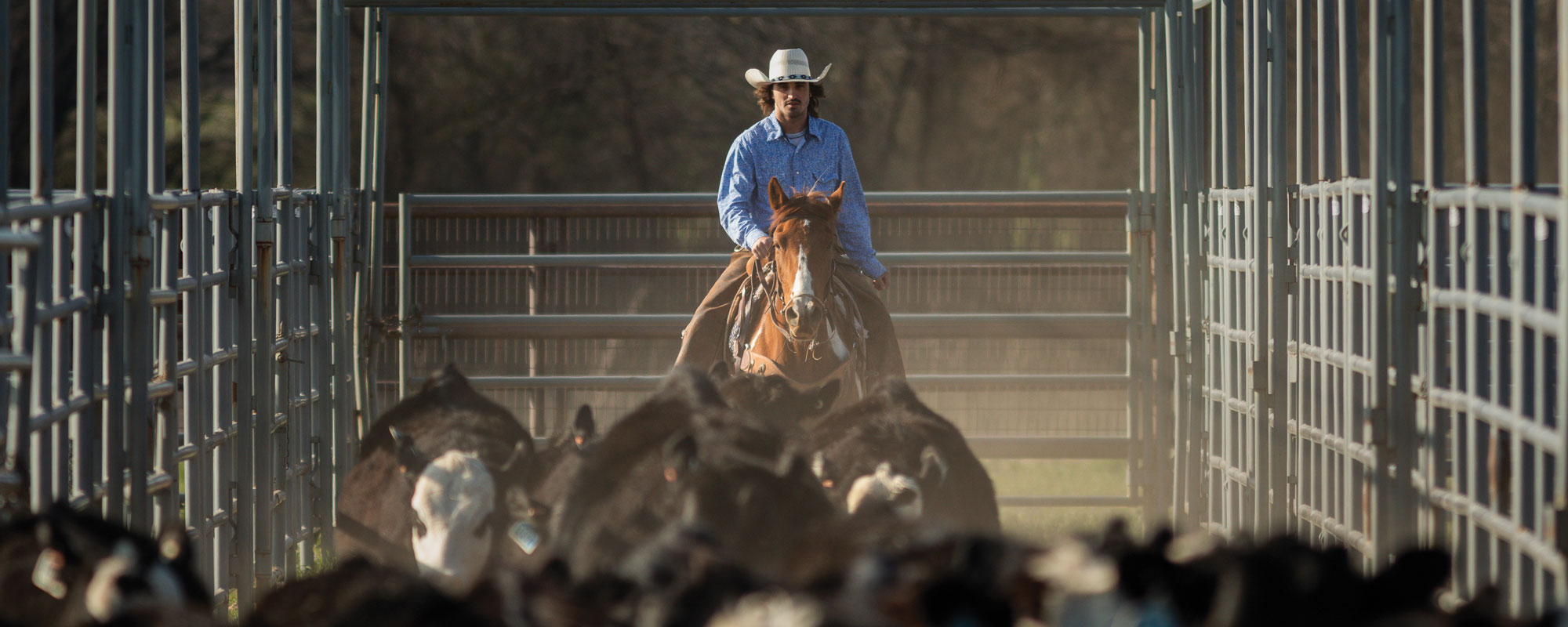
5 Noble Researchers, Consultants Share Their Personal Ag Stories
Many at the Noble Research Institute raise cattle and are otherwise engaged in production agriculture outside of their full-time jobs. Others grew up on farms and ranches. These are their stories.
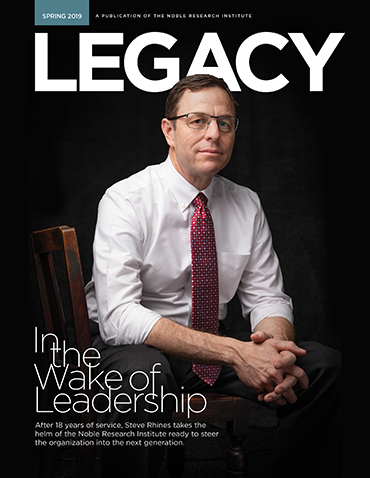
Read the full Legacy Magazine digital issue
The Legacy of The Land
Enjoy stories, adventures, and insight from the hardworking men and women finding freedom and success in the ranching life. Subscribe today.

